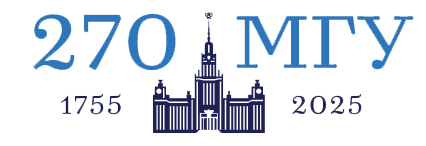You are here
Department of Supercomputers and Quantum Informatics
Head of the department: Voevodin Vladimir, Corresponding Member of RAS, Professor, Dr.Sc.
The Department was established in 2011 in response to the need for amplifying the field of high performance computing (HPC) and technology as well as quantum informatics. The group of scientists from the Department of Computing Systems and Automation joined their colleagues from the Department of Quantum Informatics which was created in 2001 by the head of the Russian scientific school of quantum informatics, Academician of RAS K.A. Valiev who leaded it till 2010.
Staff members:
- Voevodin Vladimir, Corresponding Member of RAS, Professor, Dr.Sc.
- Ozhigov Yury, Professor, Dr.Sc.,
- Molotkov Sergey, Corresponding Member of the Academy of Cryptography of Russia, Professor, Dr.Sc.
- Popova Nina, Associate Professor, PhD
- Nikolsky Ilya, Associate Professor, PhD
- Zhukov Konstantin, Assistant Professor, PhD, Scientific Secretary of the Department
- Smirnov Alexandr, Associate Professor, PhD
- Rusol Andrei, Associate Professor, PhD
- Burjak Dmitriy, Assistant Professor, PhD
- Semenov Alexandr, Assistant Professor, PhD
Supercomputing research of the Department is devoted to theoretical and practical problems of system and applied software for high performance computers, theory and practice of high performance computing, the development of a new architecture of high performance computers including perspective exaflops systems. Our research aim is addressed to future needs of the high-end parallel computing.
The Department members fulfill research to address systems and tools design for the parallel programming, the complex problems of mapping the structure of algorithms on the architecture of supercomputers. Machine learning methods, evolutionary computations and neural networks are used for the large data sets processing and automatic tuning of parallel programs.
Another important goal of our work consists in performance analysis, evaluation and prediction (from analytical and experimental perspectives) of parallel applications running in heterogeneous environments using these novel techniques. One of the areas of scientific research conducted at the Department is related to visualizing aspects of scientific data on supercomputers.
The Department participates in an interdisciplinary research with other departments to address the current applications in bioinformatics, management of complex dynamic systems, industrial mathematics, and others.
An important activity of the Department is focused on developing educational programs in the field of supercomputing and parallel computing technologies. The Department’s team is actively involved in the Supercomputing Educational Project of Russian Universities. The Department is working with leading domestic and foreign IT companies: T-Platforms, Intel, IBM, NVidia, and many others.
The Department provides teaching of disciplines related to the technology for parallel programming and high performance computing. The curriculum includes introductory and advanced levels of HPC architecture including distributed-memory systems, parallel programming concepts, high-speed networking. Program graduates are expected to work in an HPC environment.
Quantum informatics represents an intensively developing area of science which concerns the description of Nature on the quantum level and creation of quantum technologies with a wide area of applications.
The Department members elaborate two directions of quantum informatics: quantum cryptography, quantum processes of information exchange and simulation of real processes on the quantum level, including quantum computer and entangled quantum states.
Students obtain good knowledge on fundamentals of quantum theory, its computational methods and applications, pass a valuable programming practice and get experience working with the team.
The Department closely collaborates with the leading researching centers in Russia: the Institute of Physics and Technology (FTIAN), the Institute of Solid State Physics of RAS, the Physics Faculty of MSU, the Institute of Physics of Belorussia (Minsk), Centers in Kazan, Yaroslavl, Izhevsk and others, and with the leading researchers from abroad (Universities of Orsay, Vaxjo, Stony Brook etc.) whom the Department periodically invites for delivering courses for students. In turn, members of the Department (including postgraduates) visit and give lectures in these centers as well.
Regular courses:
- Parallel processing by Prof. Voevodin, 32 lecture hours, 7th semester.
- Quantum computations by Prof. Ozhigov, 32 lecture hours and 32 seminar hours, 5th semester.
- Physical basis of quantum informatics by Prof. Molotkov, 32 lecture hours and 32 seminar hours, 6th semester.
Special courses:
- Parallel programming for high performance computers by Assoc. Prof. Popova and Dr. Bakhtin, 32 lecture hours.
- Neural networks by Dr. Burjak, 32 lecture hours.
- Parallel models of natural computing by Dr. Ershov and Assoc. Prof. Popova, 32 lecture hours.
- Modeling quantum systems by Prof. Ozhigov, 32 lecture hours, 5th - 8th semesters. Y.Ozhigov
- Quantum cryptography by Prof. Molotkov, 32 lecture hours, 5th - 8th semesters.
Special scientific seminars:
- Data processing using parallel computations, evolutionary algorithms and neural networks by Assoc. Prof. Popova.
- Quantum computer and simulation of quantum systems, by Prof. Y.Ozhigov
- Quantum cryptography by Prof. Molotkov.
Master programs (MSc):
- Parallel programming technologies and high performance computing Assoc. Prof. N.Popova.
- Quantum Informatics, by Prof. Y.Ozhigov, Prof. S.Molotkov.
Recent publications:
• 2013
- Sadovnichiy V.A., Voevodin V.V. "Lomonosov": supercomputing at Moscow State University // Contemporary High Performance Computing: From Petascale toward Exascale. N. Y., USA: CRC Press, 2013. C. 283-307.
- Voevodin V., Sobolev S., Andreev D. Developing GPU HPC infrastructure at Moscow State University and beyond // Tools for High Perfomance Computing. N 11. Berlin, Germany: Springer, 2013. P. 127-145.
Available from the links on web cite: http://sqi.cs.msu.su



